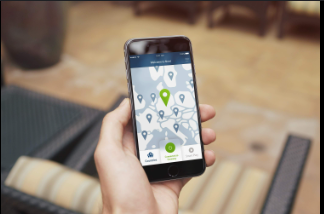Virtual Private Networks (VPNs) have become essential tools for online privacy and security. However, many misconceptions surround VPN usage. Understanding the facts behind these myths helps users make informed decisions about their digital safety. Here are 8 common myths about VPN debunked with facts.
What Is a VPN and Why Use It?
A VPN encrypts your internet connection and masks your IP address, enhancing privacy and enabling secure access to content worldwide. Many people rely on VPNs to watch services like Hulu in Argentina, access geo-blocked IPTV services like IPTV Monster, or protect their data when browsing news from sources such as USA Time Magazine.
VPNs Make You Completely Anonymous Online
VPNs improve privacy but do not guarantee total anonymity. While VPNs mask your IP and encrypt data, websites and services may still collect information through cookies, browser fingerprinting, or account activity.
VPNs Are Only for Criminals or Illegal Activities
This is false. VPNs are widely used by professionals, businesses, and everyday users to secure their internet traffic, avoid censorship, and access restricted content legally.
VPNs Slow Down Your Internet Significantly
While VPNs may cause some speed reduction due to encryption overhead and server distance, high-quality VPN providers optimize speed effectively. For streaming platforms like Hulu in Argentina, a reliable VPN ensures smooth playback.
Free VPNs Provide the Same Security as Paid VPNs
Free VPNs often have limitations like bandwidth caps, fewer server options, and questionable privacy policies. Paid VPN services usually offer stronger encryption, better speed, and more trustworthy data protection.
VPNs Protect You from All Online Threats
VPNs secure your connection but do not replace antivirus software, firewalls, or safe browsing habits. They are one part of a broader cybersecurity strategy.
Using a VPN Is Illegal Everywhere
VPN use is legal in most countries, including the United States and Argentina. However, some countries regulate or ban VPN usage, so it’s important to understand local laws.
VPNs Always Hide Your Location Perfectly
VPNs mask your IP address, but DNS leaks or other technical issues can reveal location data. Choosing a VPN with leak protection is essential for accurate location masking.
VPNs Can Be Set and Forgotten
VPNs require regular updates and proper configuration. User awareness is vital for maintaining privacy, such as choosing the right server and enabling kill-switch features to avoid accidental exposure.
How Does a VPN Help Stream Content Like Hulu in Argentina?
Using a VPN allows users to bypass geo-restrictions on streaming services. For example, residents outside the US can watch Hulu in Argentina by connecting through a US-based VPN server, ensuring access to content otherwise unavailable.
Why Choose a Trusted VPN for IPTV and Online News?
For reliable access to IPTV services like IPTV Monster or browsing international news on USA Time Magazine, trust in a VPN provider with a no-log policy, strong encryption, and fast servers is critical. This protects your privacy while delivering seamless content access.
Conclusion
Understanding and dispelling myths about VPNs empowers you to use this technology wisely. VPNs are powerful tools for protecting online privacy and accessing restricted content when used responsibly and with the right knowledge.
